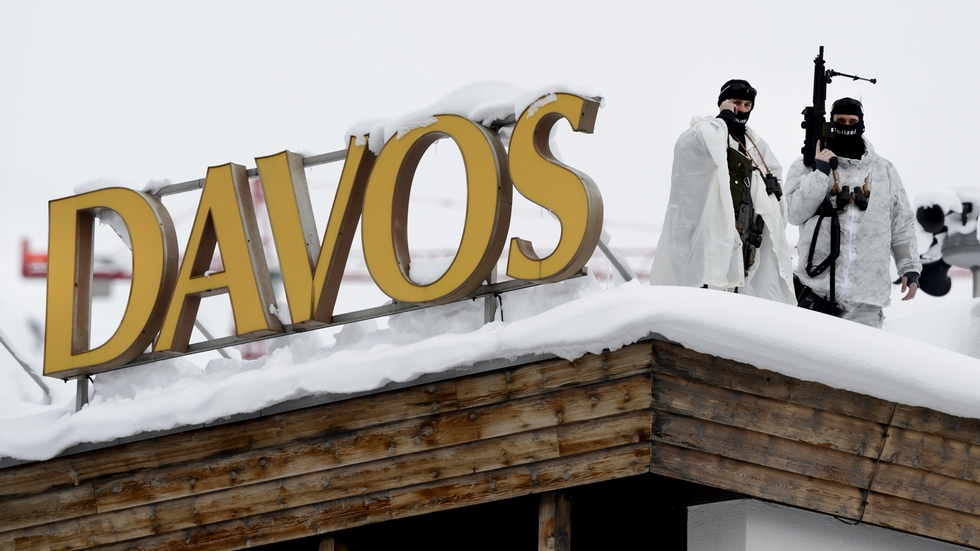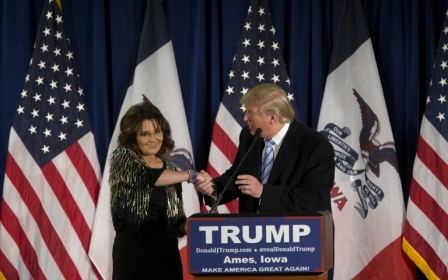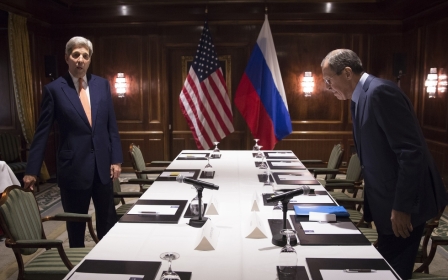Quote, unquote: Who said what in Davos

The World Economic Forum has convened in Davos, with business movers and political shakers talking shop on the latest threat of planetary economic meltdown caused by the crisis in China and the ongoing depression of oil prices.
Also high on the agenda are the crises eminating from the Middle East, chief among them the refugee catastrophe caused by decades of war, which was of course funded and prosecuted by many of the same movers and shakers at the forum.
True to our name, Middle East Eye fixes its unblinking gaze on what's being said about the region:
1. Bill Gates: US should take more refugees
Microsoft mogul, philanthropist and geek-in-chief Gates told the BBC on the sidelines of Davos that the United States should set a better example and had the capacity to follow Germany in admiting more refugees. However, he acknowledged that relaxing immigration laws "was not easy" and that there were "tight budgets". His comments will not go down well with the likes of excitable Republican presidential hopeful Donald Trump, of course.
2. George Soros: Trump and Cruz doing the work of IS
Speaking of Trump, George Soros, the "veteran billionaire speculator", says the rhetoric of Republicans plays into the hands of the Islamic State group. He goes straight for "ban all Muslims" Trump and "Walyat Chihuaha" Ted Cruz: “By fear-mongering, he and Cruz are doing the work of Isis."
Soros, who knows a thing or two about hostile takeovers, continues: "They want people to turn against the Muslim community and make the Muslim community think there is no alternative to terrorism. It turns the Muslim community into a breeding ground for Isis.”
3. David Miliband: No wall is high enough to stop refugees
The former British foreign secretary and now the CEO of International Rescue (no Thunderbird jokes please), suggests that no refugee crisis can be solved by building walls.
“Let’s get real,” he says. "If any of us were in Syria, or in Lebanon where the average monthly payment for refugee is $13 a month, we would be trying to get into Europe. All our experiences around the world shows that the higher you build the wall, the more you empower the smugglers.
"Desperate people will always get around walls - the solution must be to fix the problems in their homeland."
4. Manuel Valls: Refugee crisis could pull EU apart
Going in the opposite direction, the French prime minister says that the crisis is so large that Europe simply cannot cope and must strengthen its borders or face being "totally destabilised". He told the BBC: "It's Europe that could die, not the Schengen [free movement] area. If Europe can't protect its own borders, it's the very idea of Europe that could be thrown into doubt.
"It could disappear, of course - the European project, not Europe itself, not our values, but the concept we have of Europe, that the founding fathers had of Europe."
5. John Kerry: Iran sorted. Now, about those refugees
Moving away from refugees, for a second, the US's top diplomat gave an upbeat appraisal of global efforts to curb Iran's alleged urge to lob nuclear weapons at people.
The nuclear deal with Iran was vital, Kerry said, and brought the world back from the brink of war. "We were on the cusp of confrontation. I can’t tell you how many leaders, as I travelled through certain areas, told me ‘you’ve got to bomb it’."
Kerry then turned back to refugees, stating that President Barack Obama woud host a summit at the UN this autumn to rally the world community.
Among the aims are to increase by 30 percent the response to humanitarian funding appeals; increase the number of humanitarian donors; double the number of refugees resettled or given other safe channels; expand by 10 the number of countries taking refugees. "I know we can do it in a way that protects the security of our countries," he said.
Going by 2015's figures, more than half a million more people will have crossed into Europe by the time the UN summit gets under way, and thousands more will have died trying. No rush then.
Middle East Eye propose une couverture et une analyse indépendantes et incomparables du Moyen-Orient, de l’Afrique du Nord et d’autres régions du monde. Pour en savoir plus sur la reprise de ce contenu et les frais qui s’appliquent, veuillez remplir ce formulaire [en anglais]. Pour en savoir plus sur MEE, cliquez ici [en anglais].




